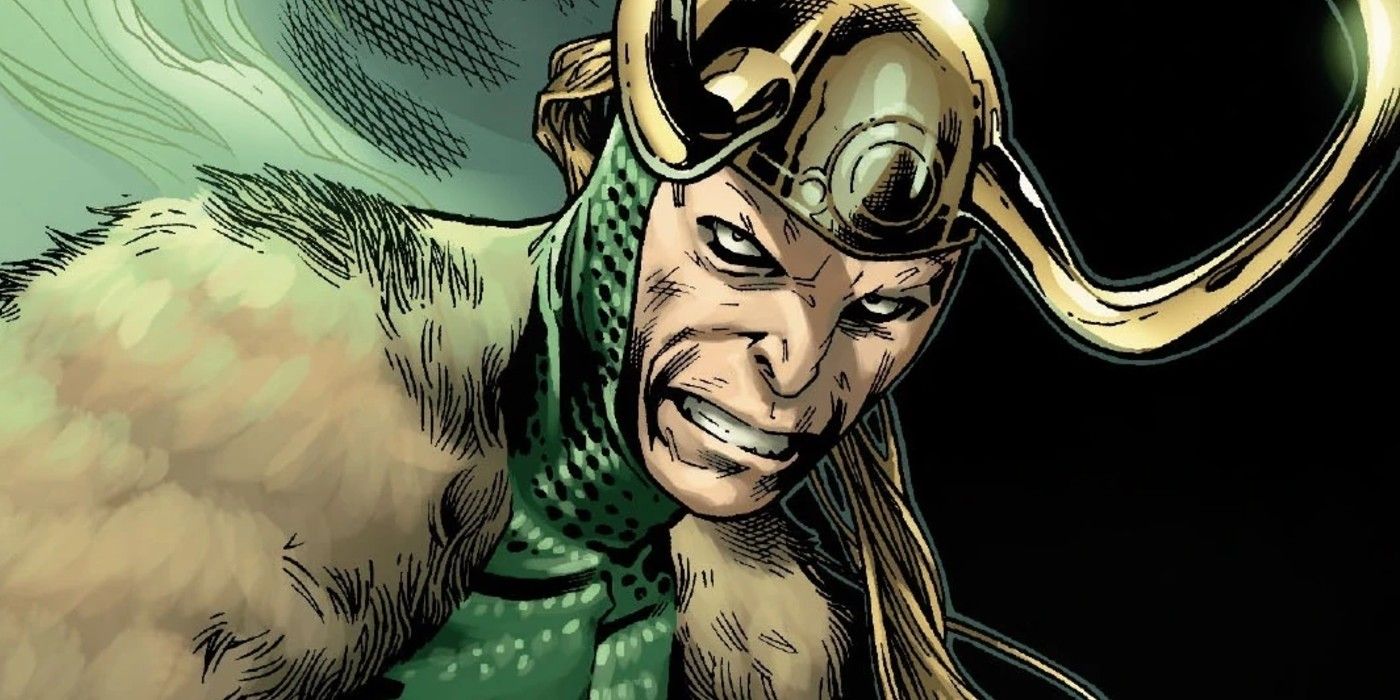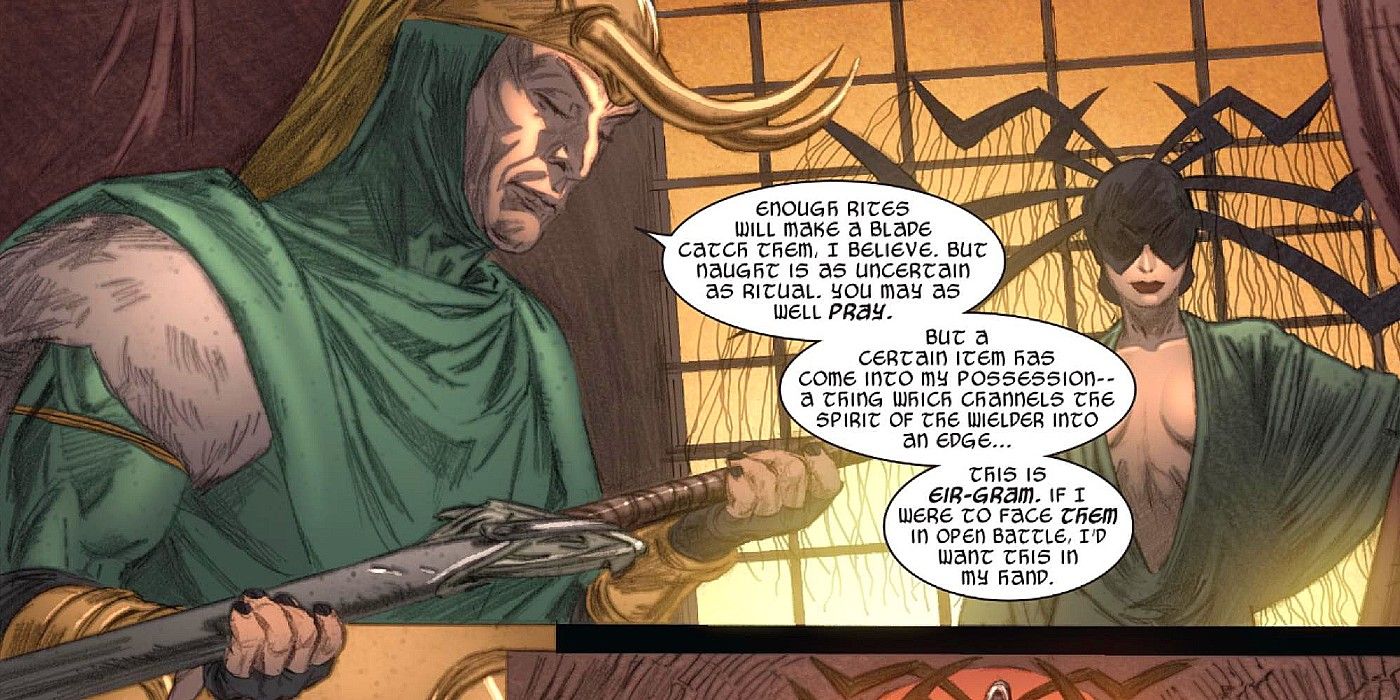Thor's hammer is a huge part of his personality and powers... literally. Only those who are worthy can wield Mjolnir, and on those occasions when Odin's favorite son hasn't been up to the task, he's lost not just his powers but his very name to those who have kept the faith. It's no surprise, then, that Thor's hammer has become a symbol of his heroism and the esteem in which he's held by Asgard, and because of that, his villainous brother Loki has coveted the weapon since before Thor was even able to lift it from the ground.
Fans of Jason Aaron's time with the God of Thunder will know that Loki already has a weapon to equal Mjolnir in his future - All-Black the Necrosword. In the limited series King Thor, a far-future Loki is finally corrupted by the blade, entering into a final battle with Thor and Gorr the God Butcher. But the Necrosword isn't so much Loki's ultimate weapon as Gorr's - a punishment which finds its way to Loki, but not a part of him in the way Mjolnir is for Thor. No, to see Loki summed up in a weapon, readers should refer to Kieron Gillen's run on Thor, and the dark blade Eir-Gram.
Eir-Gram was created as a piece in a grand game between Loki, Hela, and Mephisto too complex to go into here. Suffice to say that Loki created both a problem and a solution: he allowed the Disir, god-eating former Valkyries, free rein to consume the souls of Asgard's gods, and he created Eir-Gram as the only weapon that could reliably stop them. To do that, Loki had to commit one of his vilest acts - capturing the recently bereaved goddess Kelda and stealing a raw ingot of her pure soul, leaving her bereft of true empathy. Loki then journeyed to Hell - the burning pit ruled over by Mephisto - where he forged the pure soul into a dark blade using the heat of hellfire and his own strength.
Loki then cast a subtle curse on the sword, guaranteeing that anyone who got caught in its narrative would end up needing it at some point. Later, Loki traded Eir-Gram to Hela, creating a chain of trade and theft that ended when one of the Disir planted it firmly in the stone of Hell, using an enchantment to ensure that no-one but its owner could draw it forth. Thor was ultimately unable to draw the sword, but realizing that his mother Gaea - the spirit of the Earth - was present even in Hell, he asked her to withdraw from the blade, causing the ground to part and free it.
Thor used the sword to slay the Disir, but what's interesting about Eir-Gram isn't what was done with it, but what it reveals about Loki. Every aspect of Eir-Gram differs from Mjolnir in ways which suit Loki's character. First, he forged it himself, rather than being gifted it by a higher power. Second, rather than holding it close as a constant companion, he sends it out into the world to do his bidding. Third, Eir-Gram isn't inherently mighty; it draws power from the soul of the user. Finally, the sword was ultimately only claimed by breaking the rules - an effort of intellect rather than worth. In forging his own legendary weapon, Loki created a statement of his true nature, and this was no coincidence. Forging Eir-Gram was one of the last things Loki did as part of a plan that allowed him to be reborn afresh, guided by his own hand. Because Loki is Loki, and even the weapon you take from his hands is one he wields against you.


